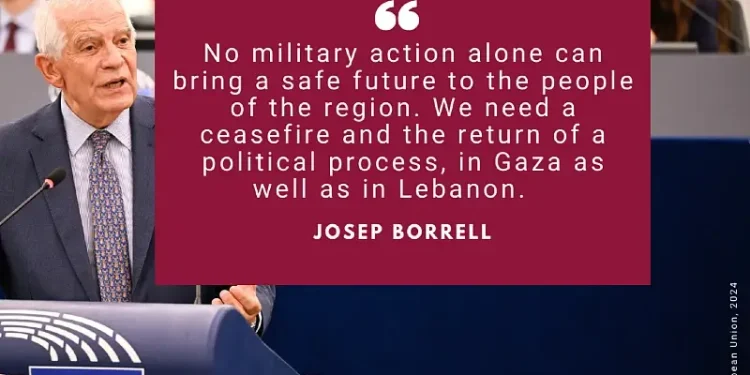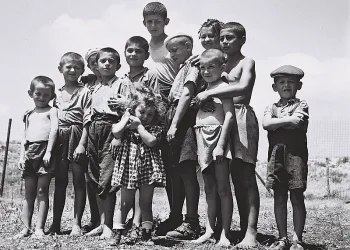New cycle of violence sweeps Middle East, threatening regional destabilization. Yahya Sinwar’s death sparks hope for peace as Europe urged to support conflict resolution and aid distribution in dire Gaza and Lebanon situations.
Understanding the Current Crisis
The October 7 attack on Israel triggered a violent escalation across the region. The response has been swift and severe, impacting civilians in Gaza, the West Bank, and Lebanon.
The European Union has condemned terrorist attacks while affirming Israel’s right to defend itself. However, as violence expands, the humanitarian crisis in Gaza worsens, with widespread displacement, famine, and destruction of vital infrastructure.
Europe’s response must be balanced, recognizing Israel’s right to security while addressing the humanitarian needs of Palestinians.
The EU’s aid efforts, valued at over €330 million, demonstrate a commitment, but effective delivery on the ground remains crucial. UNRWA, the main UN agency supporting Palestinians, faces challenges, with legislative threats in the Israeli parliament that could further restrict aid.
The Role of Ceasefires and Negotiations
With violence escalating, securing ceasefires is an immediate priority. Europe has the influence and resources to help make these ceasefires a reality. Diplomatic efforts should focus on Gaza and Lebanon, where instability poses risks not only for the region but also for European security.
European countries have a vested interest in maintaining stability close to their borders and must work with international partners like the United States and France to mediate.
Diplomatic objectives:
- Supporting ceasefire agreements in Gaza and Lebanon.
- Encouraging humanitarian aid delivery through coordinated international efforts.
A political solution to the Israeli-Palestinian conflict remains essential. Despite limited prospects, Europe must continue advocating for a two-state solution as the only viable pathway to lasting peace.
Addressing Lebanon’s Fragile State
Lebanon is another critical front. The country, already destabilized, now faces increased pressure as conflict spills over. Recent Israeli actions have caused significant casualties and displacement, creating a humanitarian crisis that could further destabilize the region.
The European Union has allocated €40 million in aid to Lebanon and is working alongside France and the U.S. to broker ceasefires.
However, for long-term stability, Lebanon’s political class must take action. Political reform, including the election of a long-delayed President, is crucial for rebuilding the state.
The redeployment of the Lebanese army in southern Lebanon, as outlined in UNSC Resolution 1701, is necessary to protect Lebanon’s borders. The EU’s support through the European Peace Facility is designed to strengthen Lebanon’s capacity to defend itself, but it requires commitment from Lebanese leaders.
A Call for Diplomatic and Political Solutions
History shows that military solutions have repeatedly failed to bring security to the Middle East. Previous Israeli invasions of Lebanon have not led to long-term safety; rather, they have strengthened Hezbollah’s position and increased regional tensions.
Peace agreements, such as those between Israel and Egypt or Jordan, have proven far more effective.
It’s time to revisit these blueprints and apply similar frameworks to the current situation, including the creation of a Palestinian state. Europe, alongside international partners, has the opportunity to drive a renewed political process.
This includes facilitating dialogue between Israeli and Palestinian civil societies and convening regional powers through initiatives like the Global Alliance for the Implementation of the Two-State Solution.
With over 90 UN member states and various foreign ministers supporting these efforts, there is momentum for change.
The Path Forward: Europe’s Responsibility
Europe cannot stand on the sidelines. Supporting the release of hostages, securing ceasefires, and aiding reconstruction efforts are immediate needs.
However, Europe’s responsibility also extends to helping build the political framework necessary for lasting peace. By promoting dialogue, engaging with civil societies, and reinforcing diplomatic efforts, Europe can help transform the Middle East’s trajectory.
Sources: THX News & European Union.








